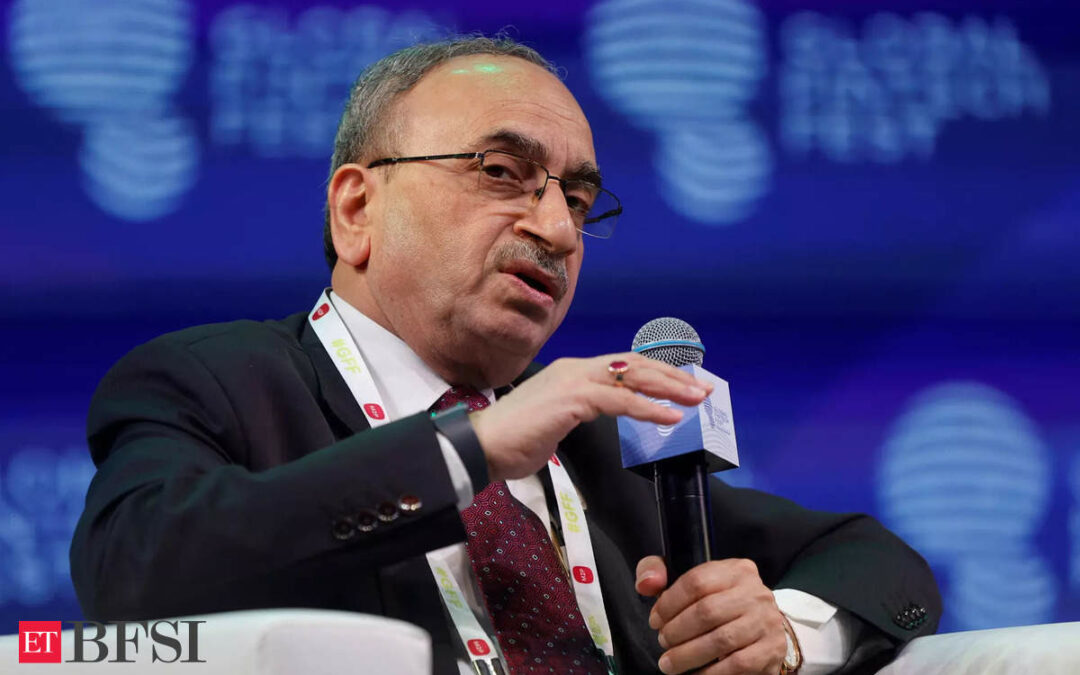“A very fine gentleman and, of course, having an eye on detail and very sharp in his grasp. So, this is how I really look at Mr Malhotra and I am quite confident that he will continue to take the RBI to the higher pedestal in terms of the contribution put in by Mr Shaktikanta Das and also perhaps he will take the legacy forward and RBI as an institution will continue to serve very well for the economy,” says Dinesh Kumar Khara, Former Chairman, SBI.
What will change at RBI because I mean, if I look at the history of RBI, while it is an institution, there is an MPC which is at play, there is a framework which they followed but individual personalities do have a role in which how RBI thought process has moved?
Dinesh Kumar Khara: I think before getting into that I must also put on record the great contribution put in by Shaktikanta Das ji as a governor because he has navigated the economy from very difficult times, like COVID and also the way he has brought in the monster of inflation under control, I think it is quite credible.
And the very other factor that he ensured that the economy should decouple. So, I think from that standpoint I would say that RBI as an institution has really served very well in past couple of years, more so under the leadership of Shaktikanta Das ji. Now, from here on when Mr Sanjay Malhotra comes in, of course Malhotra sahib I remember he used to be on the board of State Bank of India and I had an opportunity of engaging with him as a secretary department of financial services too.
A very fine gentleman and, of course, having an eye on detail and very sharp in his grasp. So, this is how I really look at Mr Malhotra and I am quite confident that he will continue to take the RBI to the higher pedestal in terms of the contribution put in by Mr Shaktikanta Das and also perhaps he will take the legacy forward and RBI as an institution will continue to serve very well for the economy.
But individuals have had a role to play in any organisation and in Reserve Bank of India the governors while you correctly mentioned that it is a framework, there is an MPC, but individuals do leave their mark.
Dinesh Kumar Khara: Yes, I do agree, I do agree on that and on that particular point I would like to highlight since he was the secretary of the department of financial services and later on he was also secretary revenue, so I think from that standpoint his first-hand information relating to how the financial sector operates and what are the challenges of the financial sector and later on, of course, when he moved in as a secretary revenue he has understood the dynamics of the state finances very well. So, I think from that point of view RBI has got a major function to perform as a banker to the banks and also banker to the government. So, from that standpoint his on-ground grasp of the things will certainly give a very different perspective for him when he leads the RBI from the driver’s seat. So, I am sure his ground level experience will be something which will be put to good use in his new role as a governor RBI.
What should be the priority of the new governor?
Dinesh Kumar Khara: I think, yes, it is actually containing inflation and also pushing growth. Both are something which I am sure would be the focus for the new governor.
One genuine concern which in a sense which has been flagged off is that the bottom of the pyramid is not growing. Reserve Bank of India in a sense has sucked a lot of liquidity out. The logic being that there was a large growth in unsecured category and that really needed to be controlled via the NBFC route. Do you think that needs to be addressed and the new governor would like to address this because now it is hurting the economy, especially consumption and especially bottom of pyramid consumption?
Dinesh Kumar Khara: Well, as a regulator, Reserve Bank of India’s focus will always be to ensure that there is a healthy growth in the financial sector. And, of course, what you mentioned in terms of the availability of liquidity with the people who are at the bottom of the pyramid, that also is one of the requirements.
But herein also, I would like to highlight, when we talk in terms of bottom of the pyramid, we do have instances where the financing is doing pretty well. But when it comes to MFI, they have some challenges. So, actually it needs to be looked into in greater detail what is really ailing and how can we really improve the flow of credit on ground.
So, this will require some more detailed analysis and based upon that appropriate action plan can be worked out. But yes, of course, there is a need for ensuring the smooth flow of credit on ground too.
I have to sneak out one question on what do you make of where this entire bottom of the pyramid consumption is moving? Do you think we are in a spot of a bother there, looking at the data and looking at the patterns there?
Dinesh Kumar Khara: Well, when it comes to bottom of the pyramid, when it comes to rural economy versus urban economy, rural economy, of course, is something which is getting influenced quite a lot by the weather patterns and also, fortunately for us the way the rainfall has happened in this current year, we are hoping that the weather gods have been kind and that should actually show up in the rural economy and the purchasing in the rural economy too.
But yes, of course, when it comes to the urban economy, perhaps there we are observing that the way inflation is eating into the purchasing power is something which is a matter of concern and perhaps it needs to be addressed and I believe that the kind of policies, the kind of understanding and appreciation of this particular factor will certainly lead to adopting some kind of encouraging policies for the urban sector too.
I will not do my job as a member of a press if I do not ask you what is next for Mr Khara now. Should you watch the space? Should we expect some announcement in terms of you taking over an administrative role to executive role soon?
Dinesh Kumar Khara: Well, I think we will have to wait and watch. I am unable to really comment much on it.










